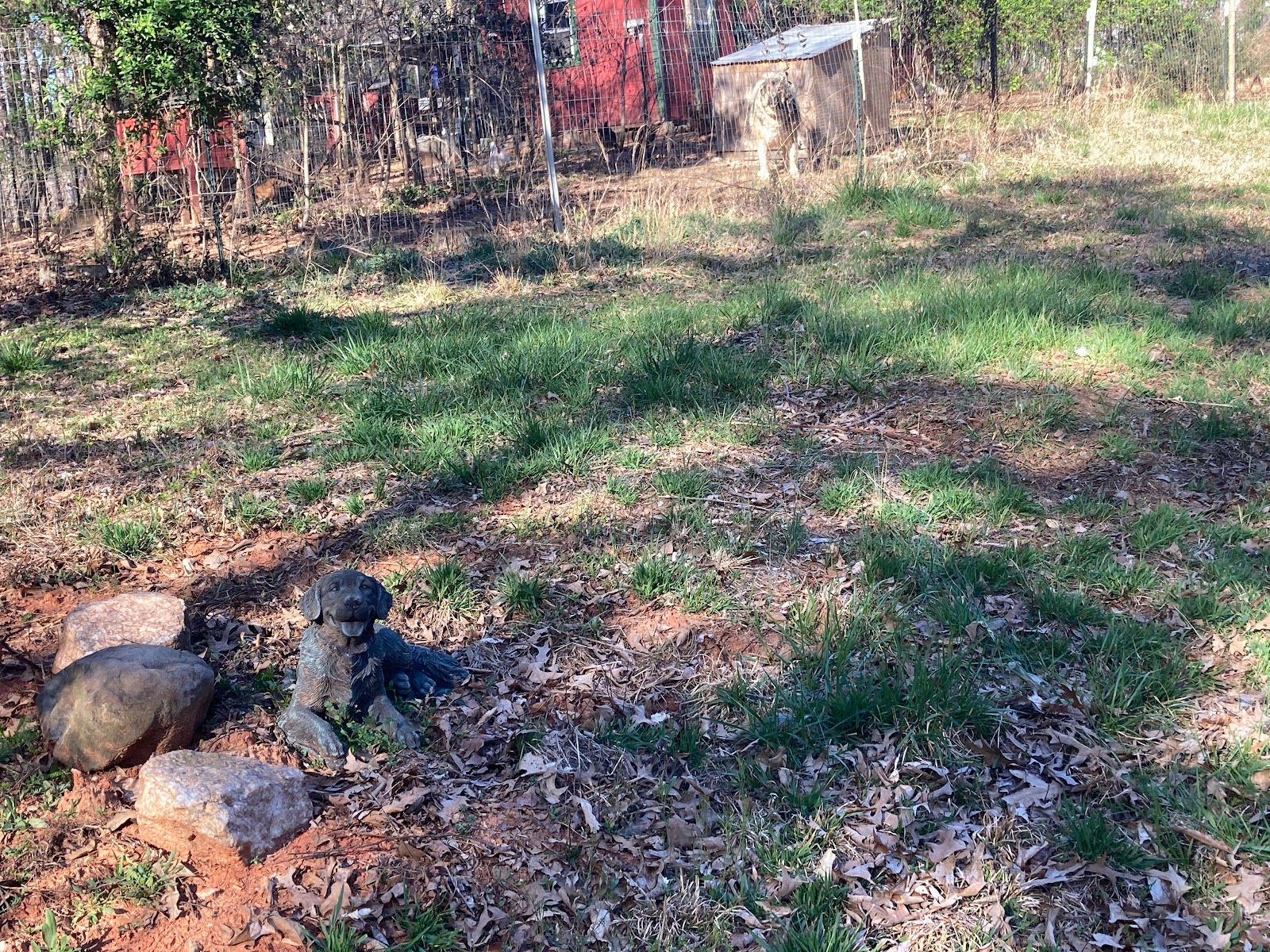The other day, 3 years ahead of schedule, I notified my employer that I'd be ending full-time work for the university at the end of the year. I'd just harrowed the hillside below the spot shown above; we'd buried our first livestock guardian dog, our beloved Vela, at the top of the hill. Life is short. In 2017, Vela had been with us 2 years and was in her vigorous middle years. Now, she's resting.
Big decisions when to retire are naturally fraught with emotion, but honestly, it was the happiest decision I've made in a long time. I don't hate my job or colleagues, but unlike many of them, I have a Plan B waiting. It differs from many retirement plans I hear such as "I'll travel more" (great!) or "I'll be more active in my church or community" (fine!).
I'm neither religious nor able to travel as much as other academics do. Luckily, I find my joy in work with words, machinery, and plants. For so many years, I realized that I love the solitude and hands-on experience of writing, gardening, forestry, and tending to land. I'm happiest on a tractor for many hours on end, coming in the house to share lunch with my wife and discuss what we've been doing that morning. My favorite pastime involves fixing and maintaining machinery and equipment; I find it much more rewarding than dealing with the messy intricacies of classroom or office. I'm getting more social, because it's healthy, but generally, others wear me out.
As my late father-in-law put it, when done with a task "I like something I can put my hands on."
In Portland we discussed how a mere hobby would not be enough to fill the hours that require intellectual company. My farm-work is not a hobby in the same way as, say building models or restoring an old car, but I got the message. I took it so to heart that after the conference, I began a book project that saw publication in 2019. Nowadays, my plans are less grandiose, but I plan on more fishing and hunting. Those hobbies are great fun but don't quite fill the bill for a healthy retirement.
Having given lots of thought to this transition since 2017, I'd advise any of you thinking of joining me in the long twilight of a working life to take stock of what brings you joy physically, emotionally, and intellectually, especially as your physical abilities will begin to taper off. A guy named Mr. John Deere helps with that, to a degree, as I find it hard to hire day labor, even for $20/hour in cash plus gas money and lunch. But no pay will buy me intellectual debate over a lunch table.
For that reason, I plan to teach part-time in retirement in my university's Master's Program for continuing students. Most of the work will be full-remote for small classes, allowing more time to help my students develop intellectually. Given my research and writing interests, I plan to be on campus weekly and that will include lunch with old colleagues, attending arts events and seminars, even going to a professional conference every few years in areas where I'm still writing professionally.
All that without the messy things: committee assignments, office hours for undergrads, lots and lots of grading. That means more solitary time on the tractor or behind a chainsaw or at a work bench. I've lots of ideas about managing invasive species, cultivating land for pollinators and native wildlife, and more.
You'll read about them here.
